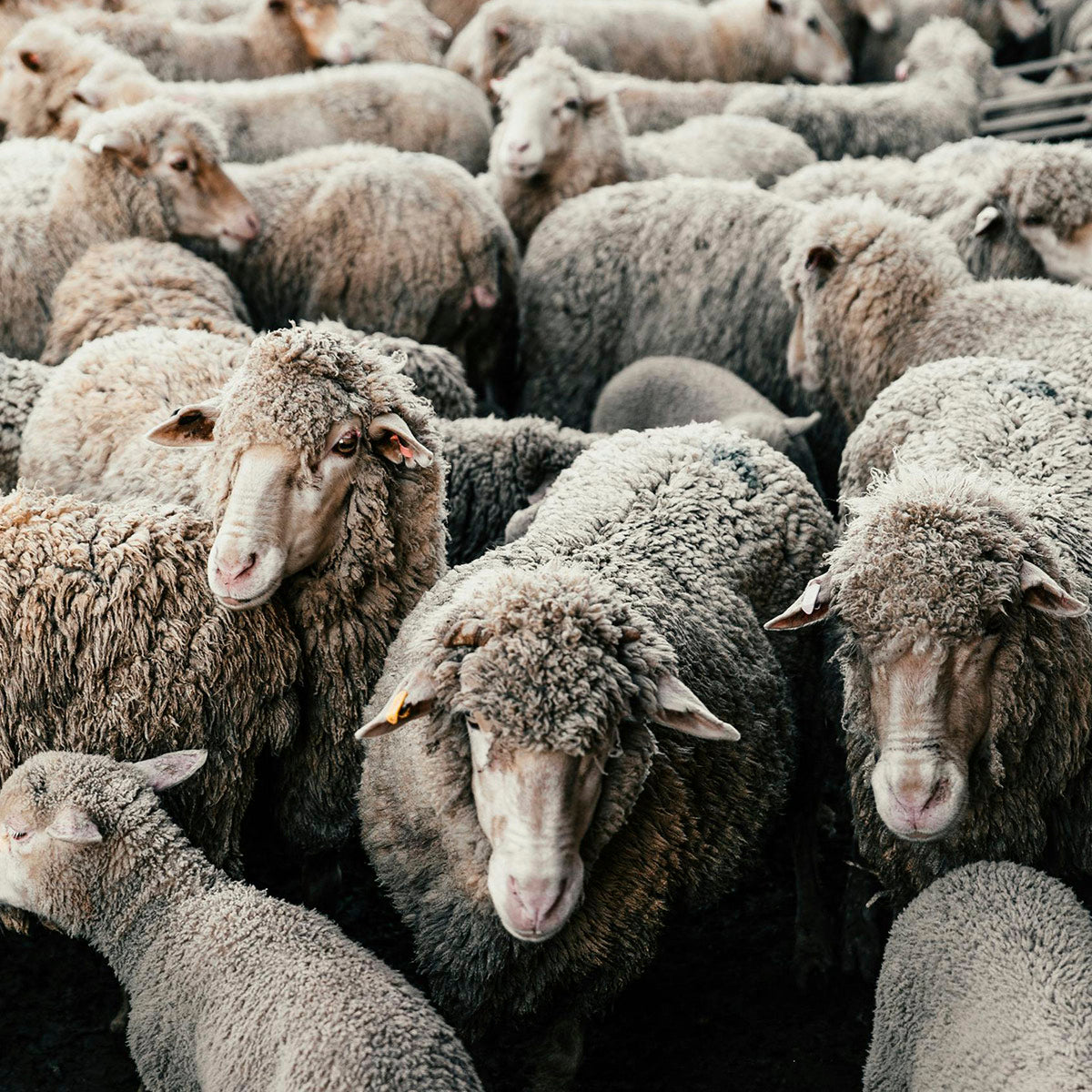Rise of Australia's Sheep Industry
Australia's sheep industry is a significant and vibrant part of its agricultural sector, contributing substantially to the national economy and playing a crucial role in rural communities. The reasons behind the high number of sheep in Australia are multifaceted, involving historical, geographical, climatic, and economic factors. This article delves into why Australia has so many sheep, the country's sheep farming practices, the impact of weather on this livestock sector, and the diverse uses of sheep, including the production of UGG boots.
Historical and Economic Foundations
The origins of Australia's sheep industry date back to the early days of European settlement. In 1788, the First Fleet brought sheep to Australia, primarily for meat and wool. The industry began to take off in the early 19th century when John Macarthur and others started to breed sheep for their wool, recognising the suitability of Australia's vast pastoral lands for sheep farming. The Australian Merino sheep, known for its high-quality wool, became the cornerstone of this thriving industry.
The economic case for sheep ranching in Australia is compelling. Sheep are multifunctional animals with meat, wool, and skins that can be exported. The global demand for wool, particularly fine Merino wool, has long been a major driver of the Australian sheep industry. This demand has prompted farmers to increase their flocks and take advantage of the continent's vast grazing grounds.
Geographical and Climatic Advantages
Australia's geography offers vast tracts of land suitable for extensive sheep farming. The country's varied climate, from the temperate regions of the southeast to the arid and semi-arid zones of the interior, provides diverse environments for sheep farming. Sheep are hardy animals, adaptable to a wide range of conditions, which makes them ideal for Australia's changing climates.
The Australian climate, with its periods of dry weather, suits sheep farming better than other types of livestock that might require more water or lush pastures. The ability to farm sheep in relatively arid areas allows for the large-scale production of sheep and wool without competing with other agricultural activities that require more fertile land or intensive water use.

Farming Practices
Sheep farming in Australia is characterised by extensive grazing systems, where sheep roam over large areas, feeding on natural grasses and vegetation. This low-intensity, extensive farming method is well-suited to the Australian landscape and climate, minimising the need for supplementary feeding and allowing for the sustainable management of natural resources.
Australian sheep farmers have also been at the forefront of agricultural innovation, adopting practices that improve the efficiency and sustainability of sheep farming. These include advancements in sheep breeding, health management, and wool production. The use of technology, such as electronic tagging for tracking and managing livestock, and sustainable land management practices, has helped Australian sheep farming remain competitive on the global stage.
Impact of Weather
Weather plays a significant role in the success of the sheep industry in Australia. Droughts can have a severe impact on pasture availability and water resources, challenging farmers to maintain their flocks. Conversely, good rainfall years lead to abundant pasture growth, benefiting sheep production. Australian sheep farmers have developed strategies to manage these climatic variations, including water conservation techniques, drought-tolerant pasture species, and flock management practices that allow for rapid adjustment to changing conditions.
Uses of Sheep
Sheep in Australia are primarily raised for their wool and meat. Australian wool is renowned worldwide for its quality, particularly the fine wool of the Merino sheep, which is highly sought after for fashion and textiles. Sheep meat, including lamb and mutton, is a staple in domestic and international markets, with Australia being a leading exporter.
Beyond meat and wool, sheep by-products play essential roles in various industries. Lanolin, a by-product of wool production, is used in cosmetics and skincare products. Sheepskins are used in the manufacture of leather goods, including the iconic UGG boots.
Technological Advances in Sheep Farming
Technology is revolutionising sheep farming in Australia, bringing about significant advancements. Modern breeding techniques such as genetic mapping and artificial insemination are at the forefront of producing healthier and more productive sheep. These technological innovations enable farmers to select desirable traits like superior wool quality and improved disease resistance, leading to stronger flocks.
Wool processing has also seen remarkable improvements, with new machines and methods streamlining the process to make it faster and more efficient. This enhances the quality of wool, making it more valuable on the international market. Furthermore, the shift towards sustainable farming practices is evident in the sheep farming industry. Farmers are now more focused on managing the land to ensure its health and productivity for future generations. This includes adopting practices that reduce water and chemical use and implementing natural pest control methods. These sustainable practices not only benefit the environment but also support the long-term viability of sheep farming, ensuring that it remains a vital part of Australia's agricultural landscape.

The Evolution and Impact of UGG Boots
Sheepskins play an important role in the creation of various leather items, most notably the iconic UGG boots, which are proudly Australian. UGG boots exemplify the luxurious quality of Australian sheepskin and wool, providing an unrivalled blend of comfort, warmth, and style. Their rise to worldwide recognition not only demonstrates the diversity of sheep-derived goods but also considerably raises the international profile of Australia's sheep industry. The transformation of UGG boots from a local product to a global fashion staple demonstrates the impact of technological advances in sheep farming. Modern procedures ensure that the wool used in UGG boots is of the greatest quality, strengthening the brand's global reputation for unrivalled comfort and style. This progression reflects broader trends in Australia's sheep sector, where innovation.
The Enduring Significance of Sheep Farming in Australia
Sheep are a big deal in Australia because of the history, location, weather, and the money they bring in. Sheep can handle Australia's different places well, and with Australia leading in wool production, sheep farming is a key part of the economy. From fancy clothes to UGG boots, sheep products are part of many parts of life and business. As Aussie sheep farmers keep coming up with new ideas and adapting to what the world wants and to environmental challenges, sheep farming will remain an important and lively part of Australia's farming scene.


